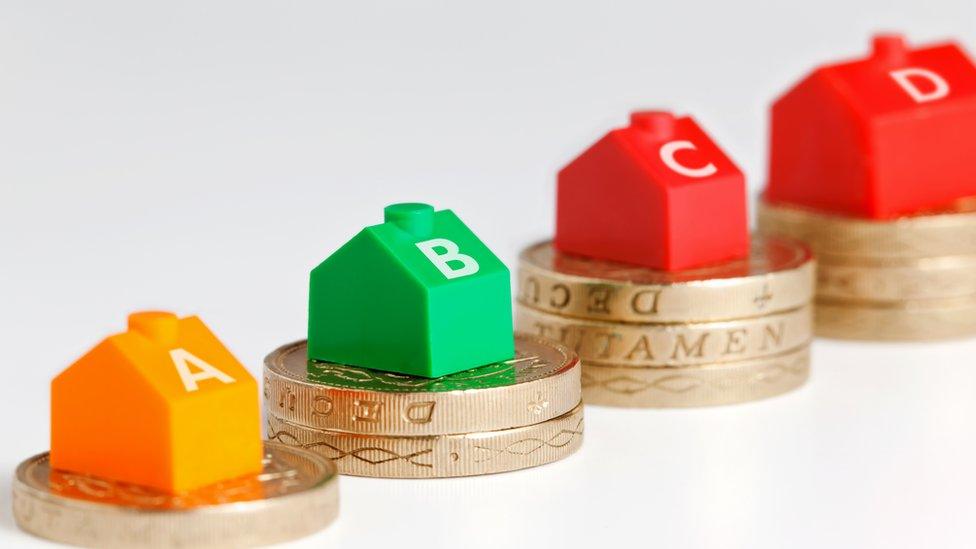Caerphilly - Council tax set to quadruple on empty homes
- Published
- comments

The move is expected to bring in extra revenue to help tackle funding pressures
Owners of properties left empty for a year or more in Caerphilly face having their council tax quadrupled.
New rules mean local authorities can charge up to a 300% premium on top of the normal rate from this year to tackle the housing crisis.
In Caerphilly, the aim is to clamp down on the borough's 1,008 long-term empty homes, 131 of which have stood empty for a decade or longer.
The premium could also apply to second homes.
Plans for a similar 300% policy were also announced in Newport recently and the move is expected to bring in hundreds of thousands in extra revenue.
Other councils such as Pembrokeshire and Gwynedd having already started charging 100% and 150% premiums respectively.
Similarly, owners of long-term empty properties in Ceredigion, who currently pay a 25% council tax premium, will see it increase to 200% from April 2024, while those with second homes will pay a 150% premium from spring 2025.
In a meeting on Wednesday, Shayne Cook, Caerphilly council's cabinet member for housing, said the local authority had made "great headway" in tackling the issue of empty homes, returning 104 properties into use last year.
According to the Local Democracy Reporting Service, council leader Sean Morgan also supported the plan, describing empty homes as "massively" impacting on communities and leaving neighbours "complaining about the neglect" of some of them.
Following the cabinet giving its unanimous backing to the plan, the council will now launch a public consultation on the proposal to raise council tax premiums for such properties.
The cabinet was told there was "some leeway afforded" to owners in the short-term after a property was vacated.
A four-week public consultation is expected in the coming weeks and, if the council agrees to bring in the premiums, the new policy could be enforced from April 2025.
Related topics
- Published2 May 2023

- Published27 October 2023
